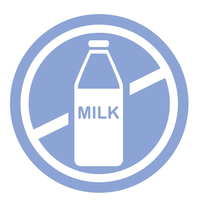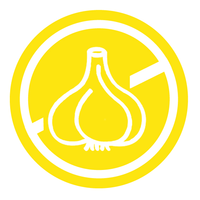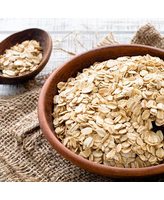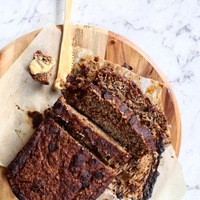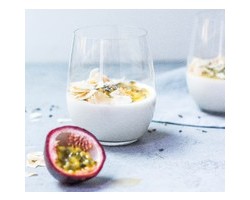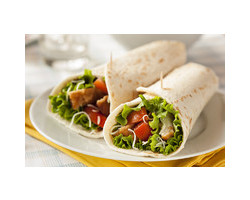Which sugar substitute is best?
Author: Lyndell Stringer Date Posted:16 July 2018
Have you ever wondered which sugar replacement you should be using in your food preparation? Here we give you a quick run-down of the pros and cons of some popular sugar substitutes.
For the most part, sugar is still sugar. All sweeteners are actually comprised of one or more forms of sugar, whether that be glucose (aka dextrose), sucrose, fructose, maltose, galactose and lactose. The difference is in how your body breaks down and utilises the sugars.
Rice malt syrup
Also known as brown rice syrup or just rice syrup, this sweetener is derived from brown rice.
Rice malt syrup contains soluble complex carbohydrates, maltose and a small amount of glucose. It is 100% fructose free, making it suitable for those on a low FODMAP diet and is vegan-friendly. However, rice malt syrup does not contain any nutrients and it has a very high glycaemic index of 98 meaning it will spike blood sugar levels very quickly before ‘crashing’. For comparison, regular table sugar has a GI of 63.
Coconut sugar
Coconut sugar is made from the sap of the coconut palm tree, has a light, toffee taste and looks like brown, granulated sugar. It undergoes very little processing and therefore retains some of the natural vitamins and minerals (iron, zinc, calcium and potassium). Coconut sugar also contains a fibre called inulin, which may slow glucose absorption and explain why coconut sugar has a lower glycaemic index (54) than regular table sugar.
Despite frequent claims that coconut sugar is effectively fructose-free, it contains 70–80% sucrose which is half fructose. In other words, it has three-quarters of the amount of fructose found in regular sugar. Although coconut sugar has a slightly better nutrient profile than table sugar, it is still likely to have the same diabetic health effects so use coconut sugar in moderation, as you would regular sugar.
Maple syrup
Maple syrup is made from boiling down the sap from maple trees, and without any further processing is one of the most natural sweeteners. It is also higher in nutrients than table sugar, containing small amounts of calcium, zinc, iron, potassium and manganese. However, it is still high in sugar, with 67% sucrose, making it the same as table sugar. Maple syrup is a better alternative than refined sugar however only consume it in small amounts, as you would with any sugar.
Agave syrup
Agave syrup is produced from the core or ‘pina’ of the agave plant. The sap is extracted, exposed to enzymes to break the carbohydrates down further, filtered and heated to create the syrup or ‘nectar’. Because agave syrup has a very low glycaemic index it was thought to be a healthier sugar alternative, however, it is incredibly high in fructose (75%). Fructose may not raise blood sugar levels or spike insulin in the short term but can cause fatty liver disease when consumed in high amounts which can eventually lead to insulin resistance.
Stevia
Stevia comes from the leaf of a plant called Stevia rebaudiana. It has a very sweet taste, up to 200 times sweeter than regular sugar but almost no calories, meaning it doesn’t push up blood sugar levels.
Studies have shown the benefits of stevia can lower high blood pressure in people with hypertension by 6–14% plus it has been shown to lower blood sugar levels in people with diabetes. Several studies in rats show that stevia can improve insulin sensitivity, reduce oxidized LDL cholesterol and reduce plaque build-up in the arteries.
However, before we get all excited, researcher Sarah Ballantyne has raised a concern about the processed form of stevia and links to infertility. Although it would seem that enormous quantities of stevia would need to be consumed to be worried about this, if fertility is an issue for you then we suggest you avoid refined stevia.
Erythritol
Erythritol tends to be popular because it has the texture and taste of sugar but doesn’t have the aftertaste of stevia or the gastrointestinal side effects of xylitol. It has only 6% of the calories of sugar but has 60-80% of the sweetness. It is a sugar alcohol produced by fermenting corn or wheat using the fungi Moniliella pollinis or Trichosporonoides megachliensis.
Erythritol is considered safe, however high doses can cause digestive problems. Due to its unique chemical structure it passes largely unchanged throughout the digestive system until it reaches the colon where it is fermented by bacteria, producing gas. Therefore, it is best to avoid erythritol if you experience IBS, SIBO (small intestinal bacterial overgrowth) or are on a low FODMAP diet.
Erythritol is also often derived from genetically-modified corn or may contain traces of gluten if it is derived from wheat. Check that your erythritol is organic and gluten free and consume in small amounts.



